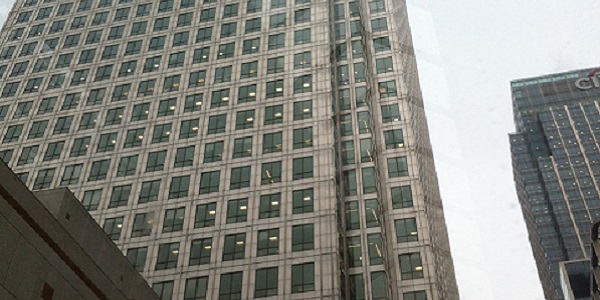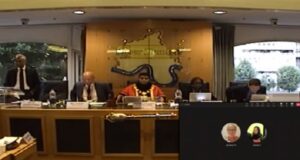WHAT HAPPENS if Brexit sees tens of thousands of financial sector jobs disappear from East London? That was the question rippling through East London, as politicians wondered if the Colman’s closure would be repeated in the capital.
Yesterday Colman’s, manufacturers of traditional English mustard, announced that they would be closing their factory in Norwich – the cornerstone of their UK operation. Rebecca Long-Bailey MP, Labour’s Shadow Business Secretary, pointed out what a serious effect this would have on those directly employed and the surrounding economy. “The closure of Colman’s in Norwich is a blow not only to the workers at Colman’s and their families but to the town and region more generally,” she said.
Ms Long-Bailey went on to point out that it is up to politicians whether the provision of jobs is managed or whether towns hit by the ongoing economic crisis are left to whither away. “Despite their claims to the contrary, the Government haven’t done anywhere near enough to stop this closure,” she said. “This highlights exactly why we need a Labour government with a forward thinking industrial strategy to attract and keep firms in the UK.”
Will her words be heard by Labour in East London – if Brexit leads to an exodus of jobs from Canary Wharf, on which many East London workers rely? For every financial services job in Canary Wharf, other jobs are created in the retail and hospitality sectors – so, just as with Colman’s, the effect of a finance jobs drain would be huge.
It was Cllr Rabina Khan who first mentioned that the Tower Hamlets Council Local Plan appeared not to be taking the risks of Brexit into account in its employment forecasts. Her comments were followed by the Council’s Overview and Scrutiny Committee holding a “spotlight” meeting on the subject – which is not recorded on the Council’s website, so didn’t really throw much light onto the Council’s strategy.
On the other hand, Labour’s London Mayor, Sadiq Khan, is taking a more active interest. He has announced that he has commissioned Cambridge Econometrics to look at London’s economy, in the context of the UK economy as a whole, broken down into nine sectors. The consultants will look at how each sector might develop in different Brexit scenarios, and Khan has asked for a report within a month.
Khan seems to have decided to do his own reports following the embarrassing fiasco in which Brexit Secretary David Davis said he had commissioned assessments of the UK economy but wouldn’t release them – and then admitted the assessments didn’t really exist when he was ordered to release them to a parliamentary committee.
Sadiq Khan said, “It is outrageous that the government either failed to properly consider the impact of Brexit on Britain’s economy, or are refusing to release their analysis. If it’s the former, then I question their competence. If it is the latter, then I question whether they have something to hide.”
Perhaps Mayor Khan’s research will lead us into analysis, forecasting and preparation in employment areas where East London’s Mayors and Council leaders have feared to tread. As Rebecca Long-Bailey points out, it is an issue which Labour should be taking very seriously.
•Read more about it:
Cllr Rabina Khan says Bungle-Biggs forgot Brexit
Brexit threatens UK food stability
[Adverts]
 East London News A Force for the community…
East London News A Force for the community…





